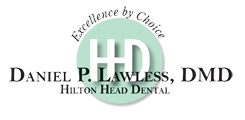Regular Dental Check Ups
Maintain Your Teeth & Prevent Future ProblemsDental check-ups are routine examinations aimed at ensuring your teeth and gums are healthy. Even if you brush and floss diligently you should schedule an appointment regularly to spot any problems early, such as dental decay, gum disease or oral cancer. During your visit we'll talk through your dental health and examine your teeth. You may require X-rays to check for potential hidden problems. We will advise how often you should have a dental check-up based on your dental health risk.
Why have a dental check-up?
While not an experience that many will readily admit to enjoying, regular visits are crucial to maintaining good dental hygiene. Even the most diligent brusher will not be able to keep their mouth completely free of plaque and only a health examination can accurately recognise the early signs of gum disease. Regular teeth check-ups will help allow you to keep your teeth for life by preventing problems from developing into something more serious.
What happens during a dental check-up?
Your visit will be for a routine check-up. We'll ask you a few general health questions and enquire whether you have experienced any dental problems or pains. Then carry out a full dental examination of the soft tissue lining of your mouth, teeth and gums.
If there are any signs that you have indulged in habits that could be detrimental to your dental health, we offer advice about any changes to lifestyle (such as stopping smoking or changing your diet), as well as oral care tips.
If these habits could lead to problems in the future, we will explain what you might be at risk of, as well as the associated treatments and costs that might be needed.
If you have tartar build up, you will be referred to the hygienist. Usually, this will take the form of a scale and polish to remove built-up plaque and tartar below the gum line. The hygienist will use several special instruments, which could include a combination of an ultrasonic device to loosen tartar or a special scraper instrument.
If further problems are found, we'll recommend the next steps you will need to take. This could be the need for repairs to damaged or decayed teeth, treatment for gum disease or further tests to aid diagnosis.
Will I need to have X-rays?
During your check-up, there may or may not be a need for an X-ray. An X-ray can diagnose a number of problems that might not have physical signs, such as dental decay between the teeth, impacted teeth, damage to the jawbone, as well as any abscesses, cysts or tumours. For children, an X-ray will also establish where the second teeth will come through.
There are various types of X-rays that you might need to have. Some machines are very small, which will show a few teeth at a time. Larger X-rays, called panoramic X-rays, will show the whole mouth, including the bone structure around it.
I'm anxious about going to the dentist. What can I do?
Dental anxiety can be very common but there are several methods you can use to help you overcome them. Discussing your fears with a dentist should be your first step but there are a number of psychological techniques you could use, as well as options for conscious sedation.
How often should I go for a check-up?
Assuming your teeth and gums are healthy, you should not need to have a check-up more often than every six months. We'll recommend how often you need to visit based on your current dental health. If you need to return for further treatment after your appointment we'll schedule this before you leave our practice.
I have a sensitive gag reflex. Is there anything I can do?
Some people have a very sensitive gag reflex, which can make a visit to the dentist difficult. If you suffer from this, please inform us before your check-up. We will make sure to avoid sensitive areas that can trigger a gag reflex.
Occasionally, patients can inadvertently make the situation worse by drawing back their tongue and gagging themselves, or by tensing up and becoming even more sensitive to gagging. If you think this might be the case, we can make arrangements for you to bring a distraction (such as a portable music device) to keep your mind off the procedure.
Are dental X-rays dangerous?
Modern X-ray machines emit no more radiation than you would experience from a day in the sun or a commercial airline flight. We will take extra care to only use X-rays when necessary.
The exception would be if you are pregnant, in which we will only perform an X-ray in an emergency situation.
For more information on any of our services, please contact us at one of our offices.




